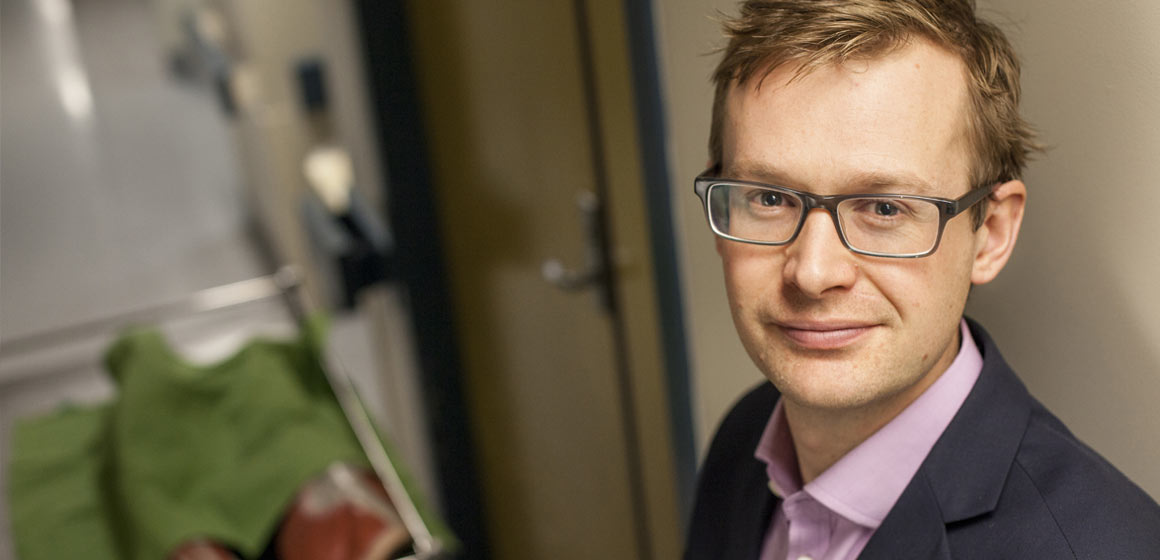 Monday 23 February 2015 12:33pm
Monday 23 February 2015 12:33pmAdvances in medical science are raising legal questions around body material and ownership.
Dead or alive, the human body is becoming big business.
Rapid advances in medical technology are making body material therapeutically and commercially valuable. The use of items from blood and semen to embryos and corpses is creating new dilemmas for the law.
Old laws struggle to cope with the new circumstances, which is why the Faculty of Law's Dr Jesse Wall is trying to find new alternatives.
“Even when we die and we leave body material behind, or when bodily material is separated from the living body, the material may be no longer part of us, but it still needs legal protection because people are interested in it – who gets to use it, store it and profit from it,” says Wall.
“Common law rules dating back four centuries state that you can't have property rights in the human body, so the question then becomes how does the law provide protection for the use of these valuable items of bodily material?
“The way in which the law is developing is to recognise property rights more often. My research aims to show that this is not inevitable and may not always be appropriate because our bodies are not the same as other types of property. Our relationships with our bodies are different from our relationships with our houses or our cars or our iPods.”
Wall's inspiration goes back to his undergraduate days studying philosophy and law at Otago. A philosophy paper on how we conceive the human body and a law paper on property theory intrigued him and, after gaining a Rhodes Scholarship to Oxford, he studied medical law.
These influences led to his current research, trying to isolate the advantages and disadvantages of applying property law to the use and storage of bodily material and looking at developing alternative legal structures.
While working at Merton College as a junior research fellow, Wall kept in touch with the Otago faculty and recently returned full-time.
“I'm primarily a lawyer doing medical law research, supplementing that with trying to engage with philosophical questions. Medical law encounters a lot of new bioethical problems, and it's stimulating to be considering new and fresh dilemmas.
“How do we understand our relationship with our bodies and how does this relationship differ, if at all, with our relationship with items of property?”
As medical science continues to develop, there's a need for a change in the legal landscape in response to these questions.
“I'm trying to develop alternative views. I'm arguing that we should protect items of separated bodily materials the same way as we protect our rights of privacy rather than the same way we protect our chattels.”
Wall has documented his ideas in a book due out in 2015 and his other research projects cover a wide range of health law topics.